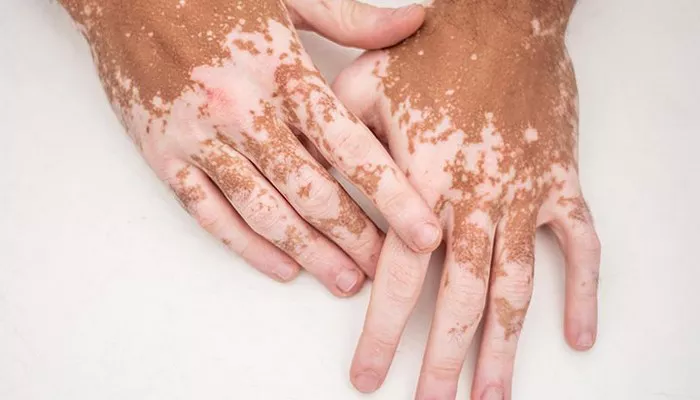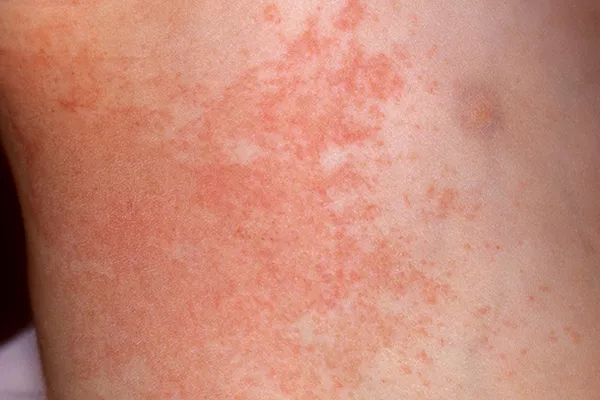Vitiligo is a chronic skin condition characterized by the loss of pigment, resulting in white patches on the skin. While the exact cause of vitiligo remains unknown, it is generally understood to involve a combination of genetic, autoimmune, and environmental factors. The progression and severity of vitiligo can vary greatly from person to person, with certain factors potentially exacerbating the condition. Understanding these factors can help individuals manage vitiligo more effectively and potentially minimize its impact.
1. Psychological Stress
One of the most commonly reported factors that can worsen vitiligo is psychological stress. Stress triggers a cascade of physiological responses in the body, including the release of cortisol and other stress hormones, which can impact the immune system. For individuals with vitiligo, heightened stress levels can exacerbate the autoimmune response, leading to increased depigmentation.
2. Skin Trauma and Injury
The Koebner phenomenon, or isomorphic response, is a well-documented phenomenon in which new vitiligo lesions develop at sites of skin injury or trauma. This can include cuts, abrasions, burns, or even repetitive friction from clothing or accessories. It is crucial for individuals with vitiligo to protect their skin from unnecessary trauma and to address any injuries promptly to minimize the risk of new lesions forming.
3. Sunburn and Excessive Sun Exposure
While moderate sun exposure can help stimulate melanin production in the skin, excessive sun exposure and sunburn can worsen vitiligo. Sunburn can cause significant damage to the skin cells and exacerbate the autoimmune response, potentially leading to the development of new depigmented patches. Individuals with vitiligo should use broad-spectrum sunscreen, wear protective clothing, and seek shade when spending time outdoors to protect their skin.
4. Certain Chemicals and Skin Care Products
Exposure to certain chemicals and skin care products can trigger or worsen vitiligo in some individuals. These substances can include hair dyes, skin lightening creams, and other cosmetic products that contain harsh chemicals. It is important for individuals with vitiligo to be cautious about the products they use on their skin and to opt for hypoallergenic and gentle formulations whenever possible.
5. Infections and Illnesses
Infections and illnesses that impact the immune system can also exacerbate vitiligo. Viral and bacterial infections can trigger an immune response that may lead to increased depigmentation. Additionally, certain chronic illnesses that affect the immune system, such as thyroid disease or autoimmune disorders, can be associated with the worsening of vitiligo. Managing overall health and seeking prompt treatment for infections and illnesses is essential for individuals with vitiligo.
6. Nutritional Deficiencies
Nutritional deficiencies, particularly those involving vitamins and minerals essential for skin health, can play a role in the progression of vitiligo. Deficiencies in vitamin D, vitamin B12, folic acid, and zinc have been linked to the worsening of vitiligo symptoms. Maintaining a balanced diet rich in these nutrients and considering supplementation under medical guidance can help support skin health and potentially slow the progression of vitiligo.
7. Hormonal Changes
Hormonal changes, such as those that occur during puberty, pregnancy, or menopause, can impact the progression of vitiligo. Hormonal fluctuations can influence the immune system and skin health, potentially leading to the development of new vitiligo patches or the expansion of existing ones. Monitoring and managing hormonal health through medical consultation can be beneficial for individuals with vitiligo.
8. Smoking and Alcohol Consumption
Lifestyle factors such as smoking and alcohol consumption have been linked to the exacerbation of vitiligo. Smoking can impair blood circulation and skin health, while excessive alcohol consumption can impact the immune system and overall well-being. Avoiding smoking and moderating alcohol intake can help improve overall health and potentially reduce the progression of vitiligo.
9. Emotional and Mental Health
Emotional and mental health can significantly impact the progression of vitiligo. Feelings of anxiety, depression, and low self-esteem can contribute to increased stress levels, which, as mentioned earlier, can worsen vitiligo. Seeking support from mental health professionals, participating in support groups, and practicing stress-relief techniques such as meditation, yoga, or mindfulness can help individuals manage the emotional aspects of living with vitiligo.
SEE ALSO: What is Universal Vitiligo?
10. Lack of Sun Protection
Individuals with vitiligo have a higher risk of sunburn due to the lack of melanin in depigmented areas. Without proper sun protection, these areas can become easily damaged, leading to inflammation and potential worsening of vitiligo. Using broad-spectrum sunscreen with a high SPF, wearing protective clothing, and avoiding peak sun hours are essential measures to protect the skin from UV damage.
Managing Vitiligo: A Comprehensive Approach
Managing vitiligo involves a comprehensive approach that addresses both physical and emotional health. Here are some strategies to help manage vitiligo and potentially minimize its progression:
A. Medical Treatments
There are various medical treatments available for vitiligo, including topical corticosteroids, calcineurin inhibitors, and light therapy (phototherapy). These treatments aim to reduce inflammation, stimulate repigmentation, and stabilize the condition. Consulting a dermatologist to determine the most appropriate treatment plan is crucial.
B. Lifestyle Modifications
Adopting a healthy lifestyle can have a positive impact on vitiligo. This includes maintaining a balanced diet, managing stress, protecting the skin from trauma and sun exposure, and avoiding smoking and excessive alcohol consumption. Regular exercise and adequate sleep also contribute to overall well-being.
C. Nutritional Support
Ensuring adequate intake of essential vitamins and minerals, particularly vitamin D, vitamin B12, folic acid, and zinc, can support skin health. A healthcare provider or nutritionist can help develop a dietary plan or recommend supplements to address any deficiencies.
D. Psychological Support
Living with vitiligo can be challenging, and psychological support is essential. Seeking counseling or therapy can help individuals cope with the emotional impact of vitiligo. Support groups and online communities can also provide a sense of belonging and understanding.
E. Sun Protection
Using broad-spectrum sunscreen, wearing protective clothing, and seeking shade are crucial steps to protect the skin from UV damage. This helps prevent sunburn and reduces the risk of new vitiligo patches forming.
F. Regular Monitoring
Regular check-ups with a dermatologist are important to monitor the progression of vitiligo and adjust treatment plans as needed. Early intervention can help manage the condition more effectively.
Conclusion
Vitiligo is a complex condition influenced by a variety of factors, including psychological stress, skin trauma, sun exposure, chemicals, infections, nutritional deficiencies, hormonal changes, smoking, alcohol consumption, and emotional health. By understanding and addressing these factors, individuals with vitiligo can take proactive steps to manage their condition and potentially minimize its progression. A comprehensive approach that includes medical treatments, lifestyle modifications, nutritional support, psychological support, sun protection, and regular monitoring can help individuals lead a fulfilling life while managing vitiligo.
Related Topics:


























